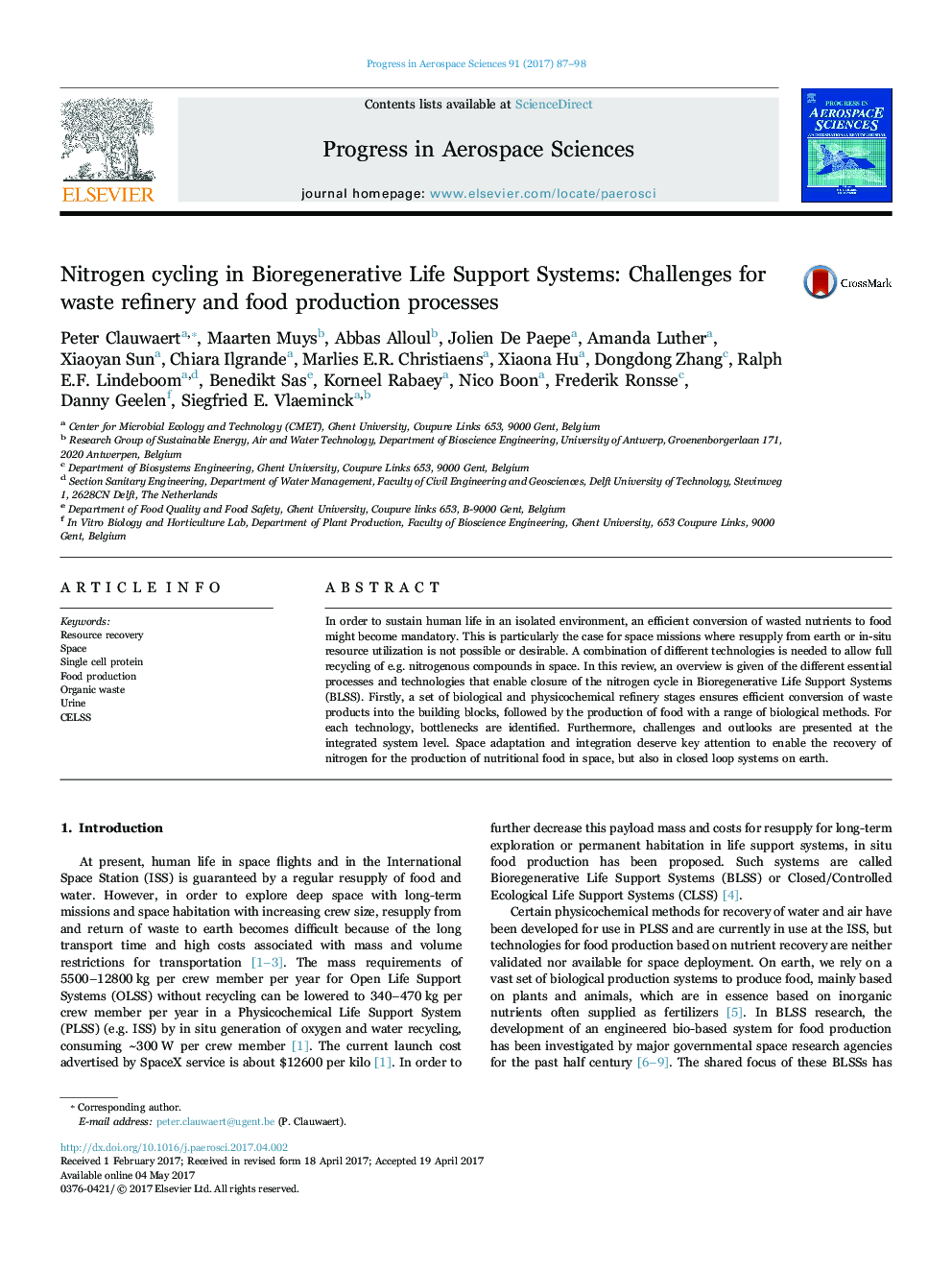| Article ID | Journal | Published Year | Pages | File Type |
|---|---|---|---|---|
| 5473081 | Progress in Aerospace Sciences | 2017 | 12 Pages |
Abstract
In order to sustain human life in an isolated environment, an efficient conversion of wasted nutrients to food might become mandatory. This is particularly the case for space missions where resupply from earth or in-situ resource utilization is not possible or desirable. A combination of different technologies is needed to allow full recycling of e.g. nitrogenous compounds in space. In this review, an overview is given of the different essential processes and technologies that enable closure of the nitrogen cycle in Bioregenerative Life Support Systems (BLSS). Firstly, a set of biological and physicochemical refinery stages ensures efficient conversion of waste products into the building blocks, followed by the production of food with a range of biological methods. For each technology, bottlenecks are identified. Furthermore, challenges and outlooks are presented at the integrated system level. Space adaptation and integration deserve key attention to enable the recovery of nitrogen for the production of nutritional food in space, but also in closed loop systems on earth.
Related Topics
Physical Sciences and Engineering
Engineering
Aerospace Engineering
Authors
Peter Clauwaert, Maarten Muys, Abbas Alloul, Jolien De Paepe, Amanda Luther, Xiaoyan Sun, Chiara Ilgrande, Marlies E.R. Christiaens, Xiaona Hu, Dongdong Zhang, Ralph E.F. Lindeboom, Benedikt Sas, Korneel Rabaey, Nico Boon, Frederik Ronsse, Danny Geelen,
